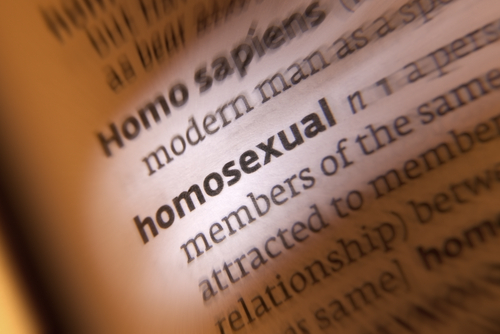 Over the last few years, things seemed to be looking up for LGBT students at BYU.
Over the last few years, things seemed to be looking up for LGBT students at BYU.
In 2007, the university revised its Honor Code to remove amorphous language that prohibited “advocacy of a homosexual lifestyle (whether implied or explicit) or any behaviors that indicate homosexual conduct, including those not sexual in nature.”
That last phrase’s wording begged the question: what in the world are non-sexual “behaviors that indicate homosexual conduct”?
The Code was also unclear on the important matter of whether simply being gay was a violation. In practice by 2007, it wasn’t.
Compare that to nearly five decades before, when BYU President Wilkinson told students:
“Nor do we intend to admit to our campus any homosexuals. If any of you has this tendency and have not completely abandoned it, may I suggest that you leave the University immediately after this assembly…we do not want others on this campus to be contaminated by your presence.”
“Contaminated by your presence.” As though people born gay were lepers with a contagious and dangerous disease.
But the 2007 Honor Code revision removed all doubt about whether simply being gay was grounds for expulsion: it wasn’t. The university affirmed that it would “respond to homosexual behavior rather than to feelings or orientation” and that it “welcomes as full members of the university community all whose behavior meets university standards.”
This means celibacy. The 2007 revision included the same “strict commitment to the law of chastity” required of all BYU students, as is right and fair.
But the Code took it a step further by prohibiting “all forms of physical intimacy that give expression to homosexual feelings,” a restriction not applied to heterosexual students.
In other words, no Gay PDA. Even so much as a hug between two women could be an Honor Code violation if one is remotely attracted to the other.
There’s been a lot of progress (see the wonderful and courageous “It Gets Better” video from gay and lesbian students at BYU, below). In 2010, for example, the university removed a controversial “advocacy” clause that made it an Honor Code violation to “promote” homosexuality as an acceptable lifestyle.
But there’s still a lot of confusion, isolation and pain for LGBT students. Last week, an article in The Daily Beast explored that side of things, the catalyst being a survey the LDS Church issued in April to young single adults (ages 18 to 29), including some students at BYU. The original wording of this question prompted some controversy:
• “I am heterosexual, but I struggle with same-sex attraction.”
• “I am heterosexual and do not struggle with same-sex attraction.”
• “Other, please specify.”
The original question had no category for being gay; the logical corresponding category to “I am heterosexual” would be “I am homosexual,” not “I struggle with same-sex attraction.”
The survey question was almost immediately revised by the Church after the story garnered angry media attention, but in some ways the question’s identity crisis persists. According to the Deseret News, it now reads simply,
“Do you experience same-sex attraction?” Possible answers are yes, no or other, with room for written responses.
While it’s an improvement that the Church is not simply assuming that everyone is heterosexual by default, there is still no option for defining oneself as homosexual.
This represents more than semantics. One of the interviewees in the Daily Beast story encapsulated the wording’s significance very well:
Cary, who graduated from BYU in 2011, explains that “LDS Church leaders are counseled when they speak with young men and women who are gay to help them move away from calling themselves gay or lesbian to saying ‘I struggle with same-gender attractions.’”
Cary says the language choice both pathologizes homosexuality and makes it seem temporary, likening it to the doublespeak in George Orwell’s 1984. “It’s a 1984 word-making-reality thing because you’re not taking on an adjective. You’re taking on a condition that’s changeable. It’s the idea you weren’t created that way or it’s not immutable.”
Homosexuality is not a phase someone is going through. It isn’t a temporary condition with which some people “struggle.” LGBT Mormons cannot “pray the gay away” or cure themselves by marrying someone of the opposite sex. (Thank God the Church has realized what a family-destroying policy that was).
That’s not to say there is no “struggle” involved for LGBT Mormons. In this video, in fact, one of the students uses that exact term to describe her life.
But the struggle isn’t about her being attracted to women. It’s about her being misunderstood and marginalized by her religious community. And every time the Church subtly denies the reality of homosexuality as an identity and casts it instead as a “lifestyle choice,” that pain deepens.






